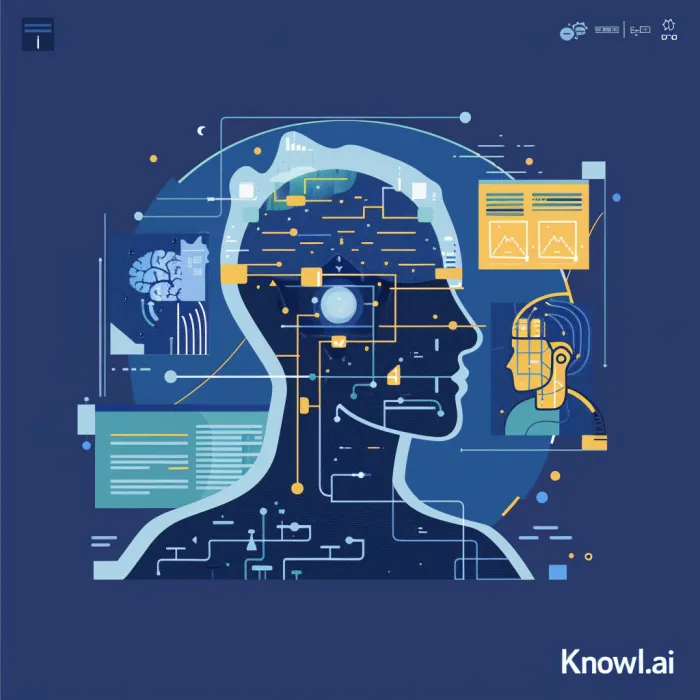In the bustling digital marketplace, where marketing teams strive to capture attention and engage audiences, APIs emerge as the unsung heroes, the wizards behind the curtain orchestrating seamless experiences. At Knowl.ai, we've tackled the beast of outdated API documentation to shine a light on how these powerful tools can revolutionize marketing strategies. Let's dive into a narrative that demystifies APIs, showcasing their pivotal role in empowering marketing teams with enhanced efficiency, automation, and strategic insights.

What is an API and Why Is It Important for Marketing Teams?
Understanding the Basics of an API
Imagine if every software application in the world spoke its own unique language, making it impossible for them to understand each other. APIs (Application Programming Interfaces) are the universal translators in this scenario, enabling diverse applications to communicate, share data, and work together seamlessly. They're like the diplomatic envoys of the digital world, facilitating negotiations and exchanges that otherwise would be fraught with misunderstandings.
Key takeaway: Understanding APIs is crucial for leveraging the full spectrum of digital tools available to marketing teams, enhancing their campaigns and strategies.
How APIs Can Enhance Marketing Strategies
In the realm of marketing, APIs act as the building blocks for creating dynamic, personalized, and efficient campaigns. They allow marketing teams to integrate various platforms and tools, from social media channels and email marketing services to customer relationship management (CRM) systems. This integration enables the automation of repetitive tasks, the gathering of rich customer data, and the delivery of personalized content, all of which are essential for crafting successful marketing strategies.
Key takeaway: APIs are instrumental in enhancing marketing strategies through integration, automation, and personalization.
How Can Marketing Teams Benefit from API Integrations?
Streamlining Processes Through API Integration
APIs are the grease in the wheels of marketing machinery, smoothing out processes that would otherwise require manual intervention. By integrating different platforms and services, APIs enable marketing teams to manage campaigns, analyze performance data, and update customer information across various channels from a single dashboard. This not only saves time but also ensures consistency and accuracy in marketing efforts.
Key takeaway: API integration streamlines marketing processes, making campaign management more efficient and cohesive.
Automating Marketing Tasks with APIs
The power of APIs to automate marketing tasks cannot be overstated. From sending out personalized email campaigns based on customer behavior to updating social media posts across multiple platforms, APIs handle the heavy lifting, freeing up marketing teams to focus on strategy and creativity. Automation also reduces the risk of human error, ensuring that the right message reaches the right audience at the right time.
Key takeaway: APIs are key to automating marketing tasks, enhancing efficiency, and ensuring precision in targeting and messaging.
Utilizing API Calls Effectively for Marketing Campaigns
Making an API call is like sending a request to a genie in a bottle—except in this case, the genie is a software application, and the wishes are specific actions or data requests. Marketing teams can leverage API calls to access real-time data, engage with customers through various channels, and even trigger actions in other applications based on certain criteria. By mastering API calls, marketers can significantly amplify the impact of their campaigns.
Key takeaway: Effective use of API calls enables marketing teams to access real-time insights and interact with customers more dynamically, making campaigns more impactful and responsive.
Top 7 APIs Every Marketing Team Should Consider Using
Exploring the Benefits of Using Mailchimp API
Mailchimp's API is like a Swiss Army knife for email marketing, offering unparalleled customization and integration capabilities. Whether you're aiming to automate email campaigns based on user behavior, segment your audience with surgical precision, or analyze the outcomes of your email blasts, the Mailchimp API stands ready. It bridges your marketing stack, allowing for a seamless flow of data between Mailchimp and other tools, making every email count.
Key takeaway: Leveraging the Mailchimp API can transform your email marketing efforts, making them more targeted, automated, and effective.
Integrating Cloud APIs for Scalable Marketing Solutions
Cloud APIs, like those offered by AWS, Google Cloud, and Azure, are the engines of scalability and innovation in marketing. They provide the horsepower needed to analyze big data, personalize customer experiences at scale, and manage ad campaigns dynamically. By tapping into cloud computing resources, marketing teams can process vast amounts of data without breaking a sweat, uncovering insights that drive strategy and engagement.
Key takeaway: Cloud APIs are essential for marketing teams looking to scale their efforts and leverage big data for insights and personalization.
How to Leverage the Power of APIs for CRM Integration
CRM (Customer Relationship Management) systems are the nerve centers of customer data for marketing teams. Integrating your CRM with other tools via APIs, such as Salesforce's robust API, opens a world of possibilities for automating workflows, syncing customer information across platforms, and tailoring marketing messages with precision. It's about making your CRM system not just a repository of data but a dynamic tool that actively informs and shapes your marketing strategy.
Key takeaway: APIs enable seamless CRM integration, enhancing customer understanding and engagement through automated data synchronization and personalized marketing efforts.
Fun Fact
Did you know the concept of the API (Application Programming Interface) dates back to the 1960s? However, it was the advent of the World Wide Web in the 1990s and the subsequent rise of web-based services that catapulted APIs into critical importance.
Today, APIs are so ubiquitous in the tech world that whenever you check the weather on your phone or share a post on social media, you're likely using an API. They're the invisible threads weaving together the digital experiences we use and love every day.

APIs as a Growth Strategy for Marketing Channels
Optimizing Marketing Channels Through API Utilization
APIs allow marketing teams to weave together a tapestry of tools and platforms, optimizing each channel for maximum impact. From social media management tools that schedule posts across multiple platforms to analytics APIs that provide real-time feedback on campaign performance, APIs help fine-tune your marketing channels. They ensure that your message is not just heard but resonates across the digital landscape.
Key takeaway: Utilizing APIs to optimize marketing channels ensures a cohesive and effective strategy that maximizes engagement and ROI.
Enhancing Marketing Automation with APIs
The magic of marketing automation lies in its ability to place the right message in front of the right person at the right time, and APIs are the magicians making it happen. By integrating APIs from platforms like HubSpot or Marketo, marketing teams can automate tasks from lead nurturing to ad retargeting, all while gathering data to refine and personalize the customer journey. This not only saves precious time but also elevates the customer experience to new heights.
Key takeaway: APIs are key to unlocking the full potential of marketing automation, driving efficiency, and personalizing the customer experience.
In the vast world of digital marketing, APIs are the unsung heroes, quietly powering behind-the-scenes processes that make or break campaigns. For marketing teams, understanding and leveraging APIs is no longer a nice-to-have but a must-have skill in the toolkit. At Knowl.ai, we're committed to demystifying API documentation, making it easier for marketing teams to harness the power of APIs and turn their creative visions into reality. Remember, in the realm of marketing, APIs are not just about connectivity; they're about opening doors to new possibilities, efficiencies, and innovations.
FAQs:
1. How do APIs change the marketing landscape?
APIs have revolutionized marketing by enabling seamless integration between various marketing tools and platforms, automating tasks, personalizing customer interactions, and providing access to real-time data and analytics. This allows marketing teams to create more effective and efficient strategies, driving better customer engagement and ROI.
2. Can small businesses benefit from using APIs in their marketing strategies?
Absolutely! APIs level the playing field, allowing small businesses to leverage the same powerful tools and platforms that larger companies use but in a more scalable, cost-effective manner. By automating routine tasks, gaining insights through data analytics, and integrating various marketing channels, small businesses can enhance their marketing efforts without the need for large investments.
3. What should I consider when integrating an API into my marketing strategy?
When integrating an API, consider the compatibility with your existing tools, the learning curve for your team, and the API's scalability and security features. It's also important to evaluate the support provided by the API provider and the community around it. Start with a clear understanding of the problems you're trying to solve or the processes you aim to improve, and choose APIs that align with your marketing goals and technical capacity.


